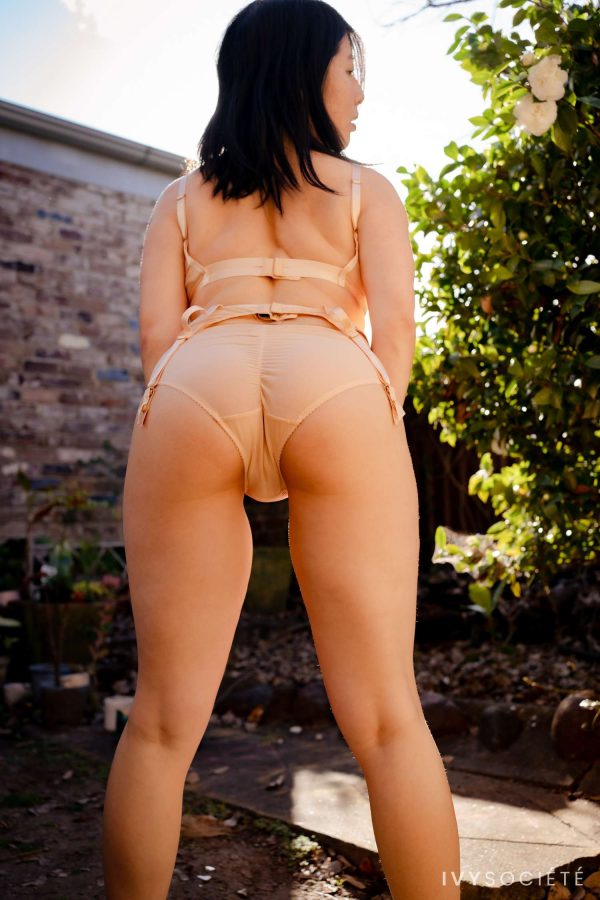There’s something vulnerable about admitting you’re curious about something new in the bedroom. Maybe you’ve been thinking about trying something different for months, or maybe you stumbled across something online that intrigued you and now you can’t stop wondering what it would actually be like. Either way, the gap between being privately curious and actually voicing that curiosity to another person can feel enormous.
I’ve worked with countless people who carried secret curiosities for years because they simply didn’t know how to bring them up without feeling exposed or worried about being judged. The shame around sexual curiosity runs deep, and it’s often rooted in messages we absorbed early on that certain desires are wrong, weird or too much. None of us are immune!
I feel curiosity is one of the healthiest signs of a vibrant sexual mind. The challenge is learning how to express that curiosity in ways that are authentic and safe for everyone involved.
Start with yourself first
Before you can articulate your curiosity to someone else, it helps to get clear with yourself about what you’re actually curious about and why. This doesn’t mean you need to have everything figured out perfectly.
Ask yourself: What specifically am I curious about? Is this something I’ve thought about for a long time or is it recent? What appeals to me about this? Am I curious about trying this in real life or is the fantasy itself satisfying?
I’ve found that people often skip this internal reflection step and jump straight to trying to communicate with a partner, which can make the conversation messier than it needs to be. When you’re still figuring out your own feelings whilst simultaneously trying to gauge someone else’s reaction, it creates unnecessary pressure and potential misundertandings.



Understand that curiosity doesn’t demand action
One thing that often stops people from expressing curiosity is the fear that once they voice it, they’ll be committed to following through. But curiosity is just information about what intrigues you. It’s not a binding contract.
You can be curious about rope play without needing to buy a harness tomorrow. You can wonder what it would feel like to be dominant or submissive without immediately planning a scene. Expressing curiosity is about opening a conversation, not making a declaration.
Choose your timing thoughtfully
Timing matters when expressing sexual curiosity. Bringing up a new kink in the middle of intimate contact can catch someone off guard, and mentioning it during an argument or when either of you is stressed rarely leads to productive dialogue.
I’ve found the best conversations happen in neutral moments when you’re both relaxed and have time to actually talk. It can also help to give your lover or partner advance notice: “I’ve been thinking about something I’d like to talk about regarding our intimate life. Would you be open to that conversation sometime this week?”
Use “I” statements and own your curiosity
When you do have the conversation, focus on your own experience rather than making assumptions about your partner. Instead of “Don’t you think it would be hot if we tried X?” try “I’ve been curious about X and wanted to share that with you.”
This approach centres your own curiosity without demanding anything from the other person. It creates space for them to have their own response. It’s also okay to acknowledge your vulnerability: “I feel a bit nervous bringing this up, but I’ve been thinking about it and wanted to be honest with you.”
Be specific but gentle
Vague curiosity can be confusing. “I want to try something different” doesn’t give anyone much to work with. But being specific doesn’t mean presenting a fully detailed plan.
You might say “I’ve been curious about what it would feel like to explore dominance and submission dynamics. I’m not exactly sure what that would look like for us, but I’m interested in the idea.” This gives enough information to start a conversation without overwhelming the other person.
Being honest about what you don’t know is also valid. “I’m curious about this but I’m not entirely sure why it appeals to me” is a perfectly reasonable thing to say.
Create space for their response
After you’ve expressed your curiosity, pause. Give the other person genuine space to process and respond without rushing to fill the silence. Their response might not be immediate and that’s okay.
They might need time to think, have questions or express their own curiosities or concerns. Try not to interpret hesitation as rejection. Someone taking time to think isn’t necessarily saying no.
I’ve found it helpful to explicitly say that their comfort matters: “I want you to know that if this doesn’t interest you, that’s absolutely okay. I value our connection more than any specific experience.”
Understand that no is a complete sentence
Sometimes the response will be that the other person isn’t interested. This can feel disappointing, but someone’s boundary around what they want to explore sexually deserves respect.
A no doesn’t necessarily mean never, but it also might. Receiving that information clearly is actually a gift because it prevents you from spending energy hoping they’ll change their mind.
You might need to decide what that no means for you. Sometimes we can happily continue relationships and connections without exploring specific kinks. Sometimes we realise certain explorations are important enough to seek elsewhere, whether through ethical non monogamy or professional services.
What’s not okay is pressuring someone to change their no or repeatedly bringing up something they’ve clearly declined. That crosses into manipulation.
Consider professional exploration
If you’re curious about something but don’t have a partner to explore with, or if your partner isn’t interested but you still want to investigate your curiosity, professional services can provide a safe base to explore.
This is one of the most common reasons people see sex workers and intimacy providers. Professional exploration allows you to try things at your own pace with clear boundaries. You can discover whether a curiosity translates into something you actually enjoy in practice or simply satisfy your curiosity in a contained way.

The gift of expressed curiosity
What I’ve witnessed repeatedly is that expressing curiosity, even when it feels vulnerable, usually strengthens our relationships. When you share something you’re genuinely curious about, you’re offering trust.
That trust, when met with respect and genuine consideration, creates deeper intimacy. Even if you never actually explore the specific thing you were curious about, the act of sharing it and being heard creates connection.
Your curiosities deserve to be expressed and shared as part of your authentic sexual self. Whether you explore them with partners, through professional services or simply hold them as private fantasies, they’re valid parts of your sexuality.
The world needs more people who can express curiosity without shame and who can hold space for others’ curiosities without judgment. When we learn to express curiosity well, we contribute to a culture where sexuality can be discussed with honesty, respect and genuine care.
Evie Elysian · Melbourne Independent Escort



